With election time around the corner, it’s important to understand how it impacts the market. If you are looking at adapting your strategy or researching political impacts on markets, we look to explain foundational topics that can be crucial to expanding your knowledge in the area.
Summary
The following is a summary of a live audio recording and may contain errors in spelling or grammar. Although IBKR has edited for clarity no material changes have been made.
Cassidy Clement:
Welcome back to the Cents of Security podcast. I’m Cassidy Clement, Senior Manager of SEO and Content at Interactive Brokers, and today I’m the host for your podcast. Our guest is Steve Sosnick, the Chief Strategist here at Interactive Brokers, and we’re going to be talking about how markets react around election time. So with election time just around the corner, it’s important to understand how this will impact the market. If you are looking to adapt your strategy or you’re researching the political impacts on the market, We’re going to try to explain some of the foundational topics and then some of the others that are crucial to expanding your knowledge in this area.
Welcome back to the program, Steve.
Steve Sosnick:
Hey Cassidy, great to see you
Cassidy Clement:
Yeah. So just to kick it right off, I mean, we’re getting into the nitty gritty of it. It’s fall. I mean, it’s a presidential election here in the U S around the corner but the big thing that people always talk about is volatility in this time. It’s what’s happening, around the volatility within this election, or around these elections, and we don’t even have to get into politics to even really talk about that. Most people, when you ask them this, they almost go, well, it depends. A leads to B, et cetera, et cetera. So, what’s your take on the volatility around, these election times? Right. Yeah,
Steve Sosnick:
Well, it depends.
Cassidy Clement:
Right.
Steve Sosnick:
You know, there are so many factors because no presidential contest is exactly the same and that’s why it’s sort of hard to generalize. One of the things that’s notable, is that markets have been pricing in a little extra volatility around the election, pretty much for the whole year and without getting too esoteric many of you are familiar with the VIX, the CBOE Volatility Index and, one of the things to keep in mind is that index has futures on it. And so the futures that expire in mid-October, have had a persistent bump, a persistent extra volatility priced into them. The reason why I say mid October is it’s important to remember what VIX is. It’s meant to measure the volatility over the ensuing 30 days. So the election in early November is within the 30-day period from the middle of October. So that’s where it got priced in, in that manner. But it’s interesting because we really didn’t see a lot of people trading, in those VIX futures. It wasn’t an abnormal amount of trading. It was just more of the markets playing defense a little bit and saying, yeah, it’s reasonable to expect a little more volatility, but we didn’t actually see a lot of, trading in those futures or a lot of what we call open interest, which are existing positions in futures, trading around there. That has since started to pick up, but that’s just natural because as we’re approaching, mid-October, literally, we’re in late September as we’re taping this, it’s normal to see that maturity of futures pick up in trading. But it’s really, it’s hard to say how much of it is election driven now, but certainly before I would say it was more market anticipating more volatility.
What I would say in the case here is, it’s reasonable to expect some volatility because this is certainly one of the closest races, in a long time. There have been some changes in leadership. Vice President Harris’s campaign has been picking up a little momentum, but every time you see polls that tells you one thing, there’s another poll that tells you the opposite. So, realistically, it’s essentially a coin flip. When you have a coin flip, it means there’s not a lot of consensus. On the plus side, the most volatile trades occur when a consensus is violated. You know, if everybody thinks something is going to happen and the opposite occurs, well then there’s huge volatility because everybody’s caught off sides. In this case, it’s a paradox because nobody knows what to expect, there’s actually not a lot priced in. People really haven’t made a ton of, investments one way or the other, based on the election outcome because it is so, difficult to call. Many ways it defies conventional wisdom because you’d think if any event is too close to call, it should therefore create more volatility because half the people are wrong. But in this case, nobody’s really done anything about it. So from a market point of view, at least as of late September, there’s not really a market consensus to be overturned by a presidential outcome one way or the other.
Cassidy Clement:
Yeah, I mean that’s kind of the biggest point right now at least when we’re talking about volatility to general consumer behavior or market trends, if you will, it’s almost an indecisiveness. And that kind of leads me into my next question, which is are markets likely to perform better or worse when you’re coming up on an election time?
And I say that with fully knowing that strategy and research that goes into your investments has to be way more than who’s going to win an election. I speak for many millennials when I say, the word unprecedented has been used to describe a majority of the events within our life so far, and it feels like we’re in another one of those.
So, I think it’s an interesting question to address, you know, maybe in the past markets performed better or worse up to an election but, you know, what do you think about that trend, and do you think that’s going to continue to happen or do you think it’s kind of just going to teeter like it’s been?
Steve Sosnick:
In theory, uncertainty should impede markets. In reality, it’s about so much more. I’ve had this conversation various times with people, both investors and in the media, you know, and they’re, they’ve said, you know, well, the election, it’s certainly the most important thing out there. And it is, if you live in the U. S. I mean, it really is. It’s going to impact how we live our lives over the, certainly the next four years and possibly beyond. But in terms of from an investing point of view, which is really what markets get into, it’s not clear how it’s going to impact a wide range of investments.
So yeah, it, it should provide a little bit of a damper because we do have all this uncertainty and uncertainty impedes one’s confidence and if your confidence is impeded, you may be a little more reluctant to buy. You may be more willing to lighten up on positions. So in theory, it should provide a little more volatility, a little bit of a headwind for the market. But in reality, I defy most people to tell me exactly how the election will impact many of their favorite companies. There are certainly industries and certainly companies that would and could benefit from such a thing, from an election. You know, among the sectors are energy, where a Republican administration is certainly, viewed as being more energy friendly,despite the Democrats assurance that, that they won’t be energy unfriendly.
And, and frankly, you know, under a Democratic administration, there’s never been more oil pumped, you know, as there is now. You can argue the inverse for green stocks where, you know, the Republican platform is not particularly friendly toward, you know, any mention of climate change or green energy of that sort while the Democratic platform is certainly, much more in favor of that. But again, even there, Texas, which is a very Republican state, top to bottom, is one of the largest producers of renewable energy. So there’s no real clear cut, yes or no. One thing that’s out there actually that does impact things, and there is a historical preference for this and a historical bias toward it is when markets tend not to love it when one party controls all the levers. Meaning you have the president, the House of Representatives, and the Senate majority all being from the same party. I defy anyone who can tell me if that’s going to happen now? Essentially all three of those races are toss ups. You could pretty much come up in a random number generator, but odds are, if all of them are toss ups, it’s very hard, to see them all, you know, shaking out in exactly the same way, barring some change as we get closer to election day, the October surprise, as it were. But that’s really about it. Just to pick a random company, are you gonna buy or sell McDonald’s based on what happens in the election? I defy you to tell me how that really changes in early January when a new president is elected. So that’s just one of many examples, it’s really in many ways better to keep your politics out of your investing mindset, because it’s not necessarily relevant to the vast majority of companies that matter.
Cassidy Clement:
So on that note, when we start to look at it from a little bit more of a macro perspective, broader markets, right? What are some examples of some market events that maybe happened around an election or because of an election that can serve as some examples? Obviously, as you said, there’s a million other things that can impact your investments but as somebody who remembers, you know, 2008’s election, 2016, 2020, all of those, where it was big turning points and at the same time, you know, you also had different financial flips or a crisis or a recession, etc. What are some of those examples that our listeners can use to kind of identify a little bit of an understanding of how elections can impact the markets or should be taken into consideration when defining a strategy?
Steve Sosnick:
Understand that it’s incredibly unpredictable and the example that comes to mind is 2016, which was a very close race. Where the popular vote in the electoral college went in different directions and that was because of some very tight races in a few specific states, and the initial reaction of the market was completely upside down. Once it appeared that, Trump had defeated Clinton, the first reaction of futures, particularly after markets was to trade lower, sharply lower. By the end of the next day, markets closed sharply higher. So conventional wisdom is not always right or wrong. And it’s not even as simple as Republicans good, Democrats bad, or vice versa, because the track record is incredibly mixed in that regard. If I’m going to offer a lesson today, don’t stress too much over the election, at least as far as your investments are concerned. Do whatever you want to do politically. Please go vote, but, you know, from an investment point of view, I’m telling you, a lot of the most experienced professionals don’t know what to do and as a result are not doing much as a result of it. It’s very difficult, you know, to say to a newer investor, you should do this or you should do that. It’s in many ways easier just to sort of say this is out there, be cognizant of it, know that it could shake things up, but it’s really, really, difficult if not impossible to say you should do this because the election might turn out with such and such a scenario.
Cassidy Clement:
What I’m going to bring up next does kind of rely on the predictability of scenarios. But we’re going to explore it anyway because anybody out there doing any type of election research is going to come across this. It’s the Presidential Election Cycle Theory. So I know there’s caveats with this. So if you would like to give our listeners a little bit of a definition, I know we’re coming to drive the point home, hey guys, there’s a lot more than just what you see on TV or what you read online to how this is going to impact the larger scale market. But, you know, this is something that gets referenced pretty heavily, especially every four years.
Steve Sosnick:
Yeah the electoral cycle, it’s a lot like seasonality and I’m sure you’ll drop a link in here to the podcast that you and I did about seasonality and they’re related. I mean, things often tend to move in cycles. The theory basically says that markets tend to do better in the first year, maybe the second as well, of a presidential term. There’s a little bit of a honeymoon period. They tend to slag off a little bit in the third year because usually, you know, nothing gets done because it’s typical for the incumbent presidential party to lose seats in the house and the senate and so you get mired into more gridlock. Then in the fourth year you get promises thrown at you so the market tends to like that too. Remember, of course, markets do tend to go up, but there’s no hard and fast rule to this especially now that we’re in what I’m going to say is a much more dysfunctional political era. Things that used to work politically just don’t anymore. So the idea that that’s something that’s tended to work over time with, you know, some general predictability, but far short of a statistical, certainty, or even a statistical likelihood, is going to persist now, it’s really hard to say.
, I do think a lot of it has to do with specifics. So, you know, for example, 2017, the market rallied because, the market was enamored with the idea of tax cuts. You know, that was the discussion pretty much the entire year and certainly, those investors with the most money to invest in the market got the bulk of the tax cuts, but that’s very market friendly in a sense. And then, you know, 2018 we had some big shocks actually, which was the second year.
The third year of the presidential cycle was 2023, and that’s supposed to be your bad year and the market was just fine in 2023. It’s a great year for markets. And going into the election now, obviously this has been a good year too. So these things are sort of general guideposts but in reality, as with all, seasonalities, with all sort of cycles there’s a general logic to them. There’s a general sense that they tend to play out the same way over time, but there’s no reason for them to play out systematically the same way over a period of time. whether it’s the business cycle, whether it’s seasonality, whether it’s a presidential cycle. Human nature tends to work in patterns, but also human nature, more importantly, tends to be unpredictable. So when you’re based on human nature, general good feelings, that kind of thing, psychological factors. That’s almost, you know, it’s really difficult to predict.
Cassidy Clement:
It’s really hard also if you’re just getting started in your investment journey in this time because you’re going to have an extra layer of over information, noise if you will, when it comes to news. A lot of short-term outlooks that are part of your research instead of more of a long term, as you were saying, like kind of, hey, you can kind of do what you’re doing here you just have to factor this into the strategy. It can’t be the whole strategy. And then also you have a lot of people trying to time the market perfectly with trends that they believe are trends and not necessarily what is seen at a broader scope. And that kind of references back to that cycle theory, that presidential election theory.
I mean, it’s looking at years and years of presidents and saying, hey, wait a second at some point in their term, they’re like, hey, I got to boost this economy, and I have to try to get re-elected, you know? It all makes sense, you want to look good, you want to make sure you get the votes again, but it all comes down to doing the right amount of research, in my opinion, and probably looking at things from a little bit of a broader scope, taking in a lot more ingredients than just one. I mean, from your perspective, what are some things you would tell investors to keep in mind if they were new to the space, just entering the investment journey, and it’s November?
Steve Sosnick:
What I’m never going to do is say, if you really have a very well thought out plan, I’m never going to tell you not to try it. Okay? So, that’s important. The caveat there is there are a lot of professionals who’ve been doing this for a long time who don’t have a lot of clarity on this topic. That also means if there’s no clarity, there’s sometimes room for being able to maneuver in a way that no one else has.
Again, so that’s why I’m not gonna, I’m not gonna tell people not to think this through. I’m not gonna tell people to ignore it. I’m not gonna tell people to, to not come up with, you know, with their best assumptions of what might transpire and how the market might react to it or how specific stocks might react to it. But, I think just basically saying, you know what, I’ve been following this stuff on Twitter and this politician or the other is saying this or that and it’s good or it’s bad. Markets are really, investors in general are really horrible at geopolitics. My point here is when you take a situation like elections, which are inherently difficult to predict, unstable in terms of outcome, and have a very nebulous effect on the vast majority of companies and their stocks, and therefore the market as a whole, don’t read too much and don’t let the election influence your decision too much one way or the other, because of all the factors I just laid out.
Cassidy Clement:
Yeah, I think that’s kind of the big, the big point here. It’s an event that needs to be taken into consideration, but it shouldn’t be the only thing taken into consideration. But, you know, we covered some great points here. Hopefully, everybody listening is keeping tabs on what the market’s doing and how the election’s impacting it, but you covered some great stuff, Steve. Thanks for joining us.
Steve Sosnick:
My pleasure as always, Cassidy, talk to you again soon.
Cassidy Clement:
Yeah, thank you. So as always, listeners can learn more about an array of financial topics for free at Interactive Brokers and ibkrcampus.com. Follow us on your favorite podcast network and feel free to leave us a rating or review. Thanks for listening, everyone.
—
Disclosure: Interactive Brokers
The analysis in this material is provided for information only and is not and should not be construed as an offer to sell or the solicitation of an offer to buy any security. To the extent that this material discusses general market activity, industry or sector trends or other broad-based economic or political conditions, it should not be construed as research or investment advice. To the extent that it includes references to specific securities, commodities, currencies, or other instruments, those references do not constitute a recommendation by IBKR to buy, sell or hold such investments. This material does not and is not intended to take into account the particular financial conditions, investment objectives or requirements of individual customers. Before acting on this material, you should consider whether it is suitable for your particular circumstances and, as necessary, seek professional advice.
The views and opinions expressed herein are those of the author and do not necessarily reflect the views of Interactive Brokers, its affiliates, or its employees.
Disclosure: Futures Trading
Futures are not suitable for all investors. The amount you may lose may be greater than your initial investment. Before trading futures, please read the CFTC Risk Disclosure. A copy and additional information are available at the Warnings and Disclosures section of your local Interactive Brokers website.
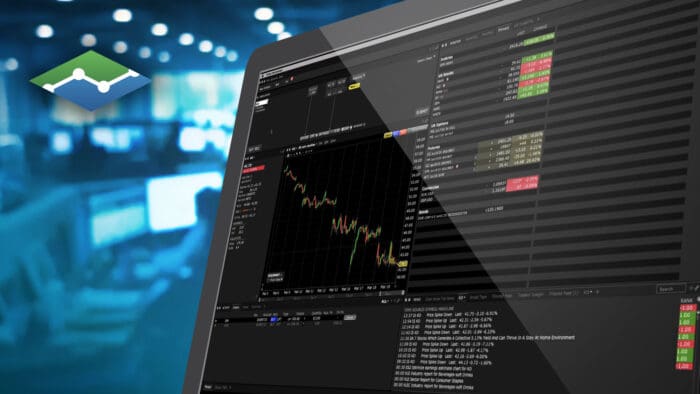





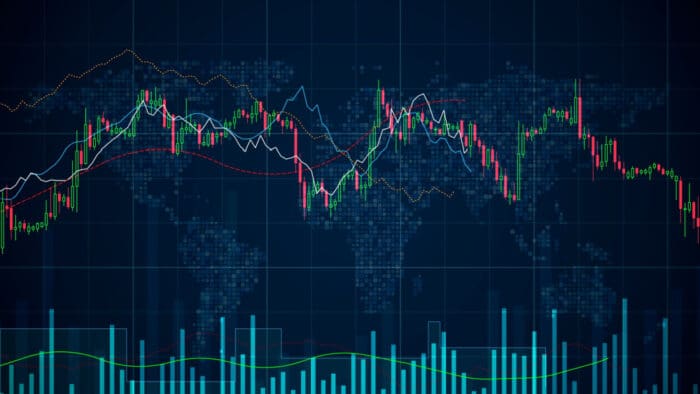

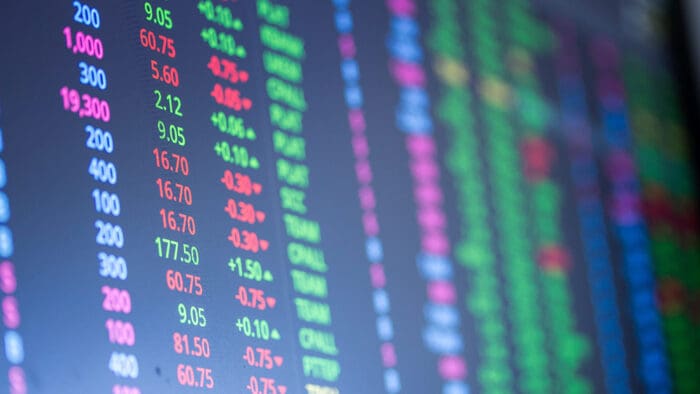

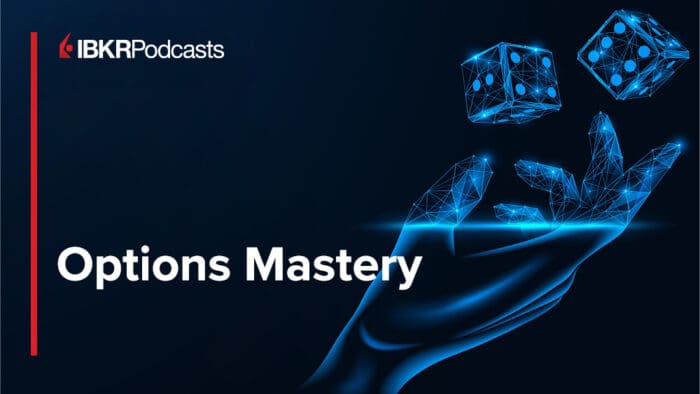

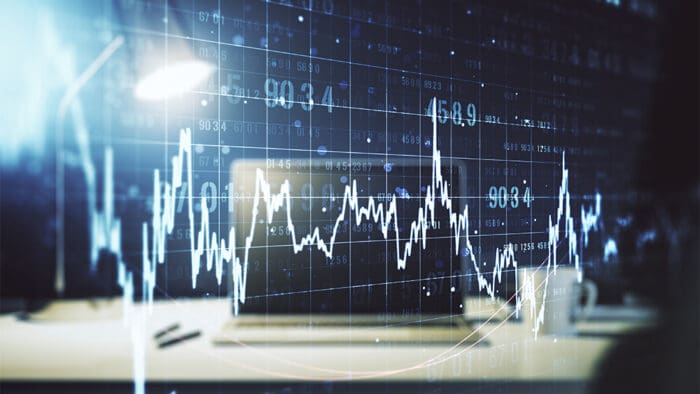

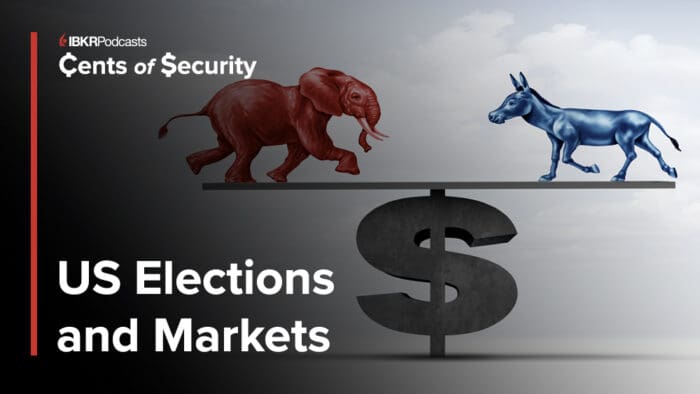

Join The Conversation
If you have a general question, it may already be covered in our FAQs page. go to: IBKR Ireland FAQs or IBKR U.K. FAQs. If you have an account-specific question or concern, please reach out to Client Services: IBKR Ireland or IBKR U.K..
Visit IBKR U.K. Open an IBKR U.K. Account